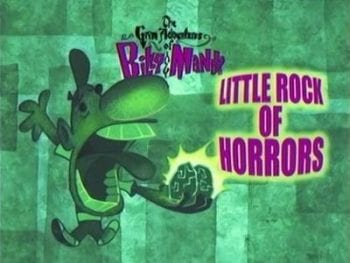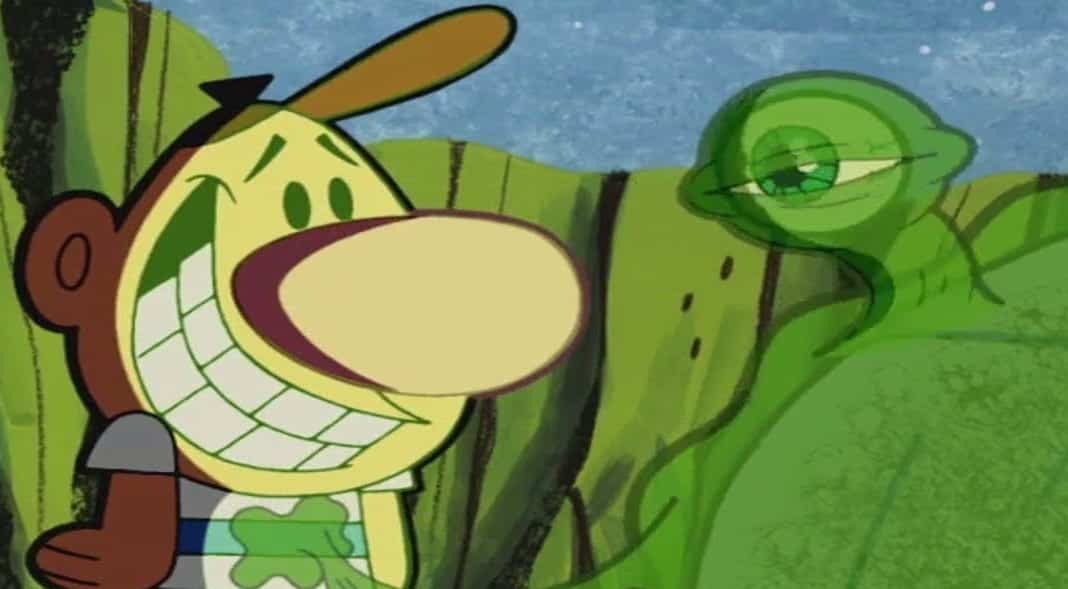Brains! A Story of Missed Attribution and Missed Opportunity
Brains! Brains! I Won't Lie! Don't let yourself be anonymized...

Imagine you’re a musician in the early 2000s who has managed to find a decent audience for themselves. You’ve been given the opportunity to tour all over and consistently play to audiences of hundreds of people.
Though you’ve already had more success than most artists will have, there’s also a sense of frustration in trying to take things to the next level and reach a broader audience.
Now imagine that you are given that opportunity. Through a combination of luck and skill you are going to have your next song featured on a popular TV show and that the song will also be promoted in a music video featured on the network.
But then, when that music video makes it to air, your name is nowhere in sight. Millions of people are hearing your music for the first time and none of them know it’s you.
That’s the story of what happened to musician Aurelio Voltaire (formerly known simply as Voltaire) and it’s a cautionary tale for artists of all types that, while attribution may be customary, it’s not universal.
The Story of Brains!
Aurelio Voltaire is a goth musician (and writer, director, animator, etc.) who, though best known for his comedy songs, also has a large library of serious works in a variety of styles.
However, in the early 2000s, Voltaire had just released his second album, Almost Human, and was touring in support of it. At a show in Los Angeles, he was approached by Maxwell Atoms who was working on a new show for Cartoon Network entitled Grim and Evil.
Atoms wanted Voltaire to write and record a song specifically for the show. The two, after a series of comic misunderstandings outlined in the video, reached a deal and the song Brains! was born.
The song tells the story of an evil meteor who crashes on earth and recruits a hapless idiot to bring people to him so he can eat their brains. Cartoon Network built an entire segment around the song, entitled the segment Little Rock of Horrors, and first aired it in October 2002.
At the time Cartoon Network had a policy where songs featured in their cartoons would be made into music videos and played throughout the day as a promotion for the show. Normally, these videos would include the title of the song and the artist’s name.
However, when the music video for Brains! aired, not only was the title of the song wrong, listing it instead as The Evil Meteor Song and only attributing it to the show. Voltaire’s name was nowhere on the video.
This led to a lengthy back and forth between him and Cartoon Network with Cartoon Network saying they had no obligation in his contract to attribute him and Voltaire protesting that it was the right thing to do and an industry standard.
After about six months, Cartoon Network “resolved” the issue by not showing the music video
In the end, what was possibly Voltaire’s best opportunity for publicity had passed and, though his music was heard by millions, few knew who he was.
Lessons Learned
For Voltaire, the lesson from this was quite simple: Have a lawyer review your contracts.
But, while that is definitely a great moral and solid advice, it goes a bit deeper than that.
Voltaire had made a perfectly reasonable assumption that his work would be attributed. Not only was it the industry standard and the right thing to do, other music videos featured on Cartoon Network had included such attribution.
Voltaire knew that he was signing over ownership of the song (and was paid well for it) but he did
The idea of people asking artists to work for exposure is practically a meme. “You can’t eat exposure,” is one of the most common refrains for artists of all types.
While that is true and working for exposure alone is unsustainable, it’s important to remember that exposure isn’t worthless and often must be fought for the same as monetary payment.
In short, while having a lawyer review your contract is always a good thing, it’s equally important to not forget about attribution when negotiating your terms.
Though you can’t eat exposure, you also can’t eat anonymity.
Bottom Line
For Voltaire, the story has something of a happy ending. He still went on to have a very successful music career and many fans did eventually discover him through Brains! as word spread of who created the song.
He also forged a friendship with Maxwell Atoms that continues to this day and even worked with Cartoon Network again to create a song for the film based upon the cartoon.
In the end, for Voltaire, it was a lesson learned and, while it may not have been the breakout moment for his career he had hoped, it didn’t harm his career either.
However, hopefully
While Voltaire wasn’t wrong to assume that Cartoon Network would follow industry practices and do the right thing (industry standards become standards for a reason), it’s always better to be clear and treat your attribution with the same care you treat your other rights.
Otherwise, both you and your work may remain anonymous, even when being viewed by millions.
Want to Reuse or Republish this Content?
If you want to feature this article in your site, classroom or elsewhere, just let us know! We usually grant permission within 24 hours.
